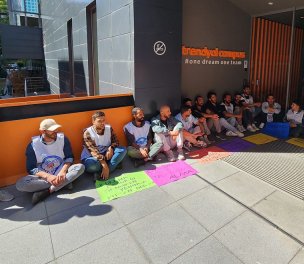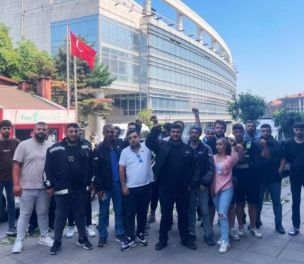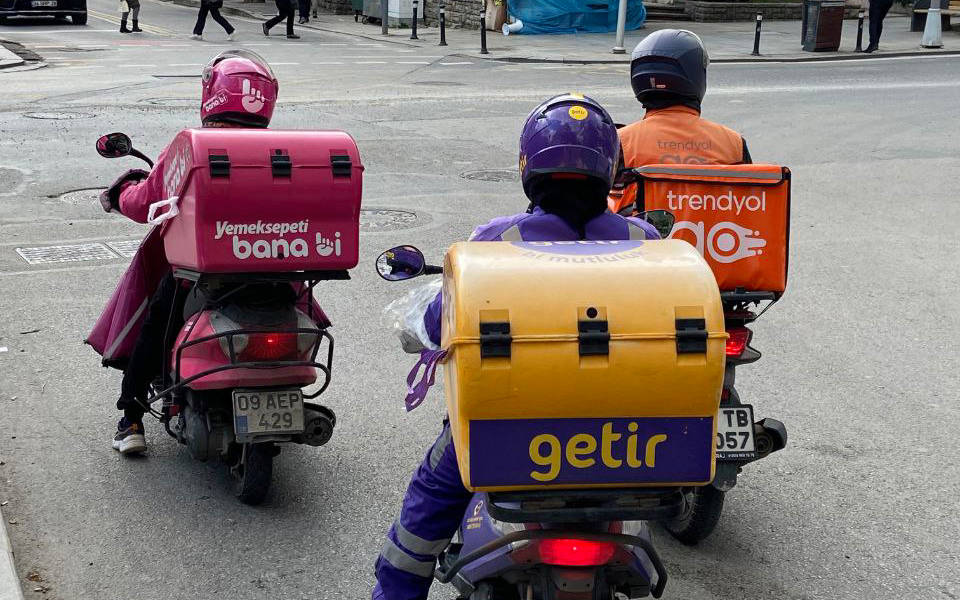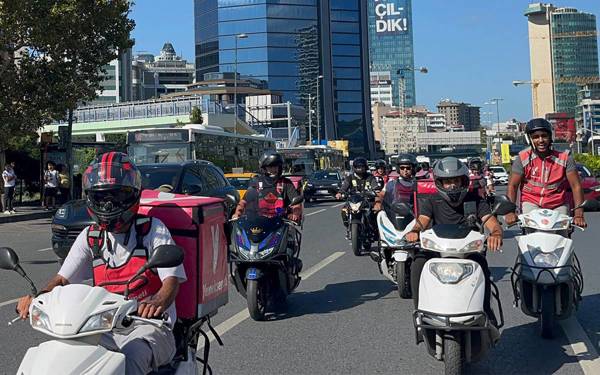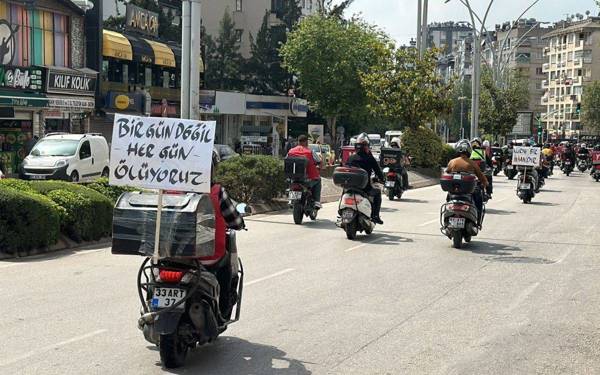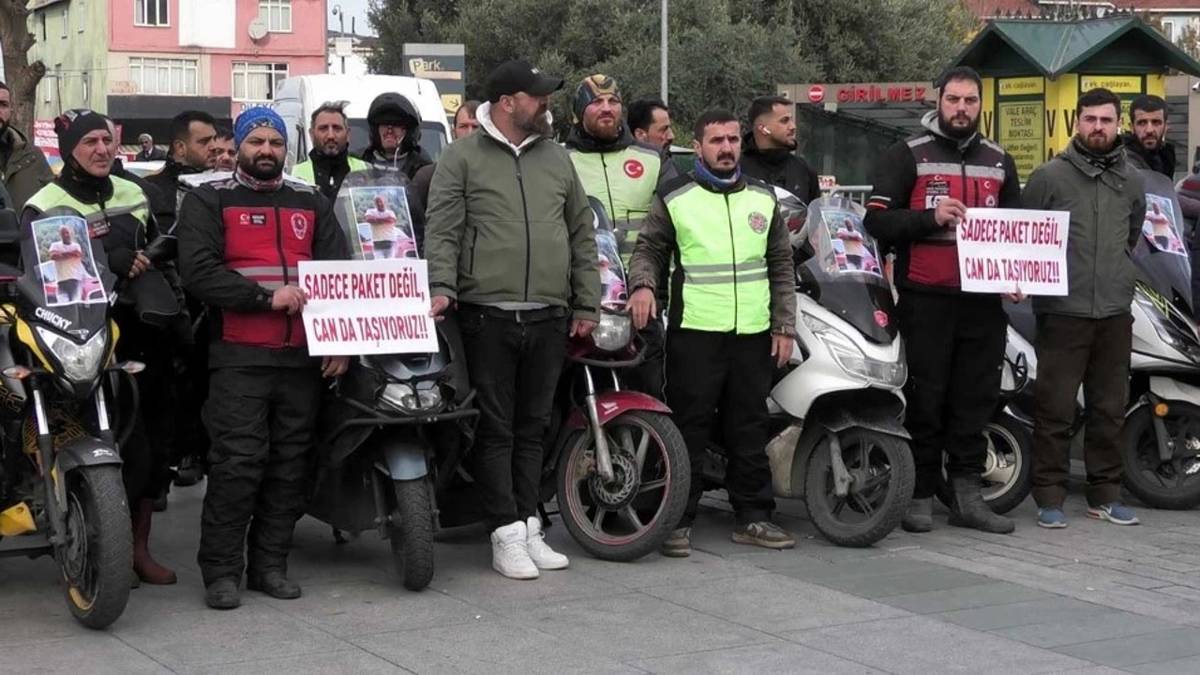Last week, TGRT Haber aired a report titled “Danger at Our Door: Couriers.”[1] This wasn’t the first news report to target couriers, generalizing isolated incidents and portraying the profession as a source of crime. In the 15-minute video, the problems couriers face were barely mentioned, while individual and systemic issues were discussed in a way that cast suspicion on couriers, which sparked outrage within the courier community.[2]
This “report” presents an opportunity to discuss the increasing class-based marginalization of couriers in recent media coverage.
Class-based marginalization and media ethics
To conduct a healthy discussion, it’s necessary to recall two concepts: class-based marginalization and media ethics.
Class-based marginalization refers to the process of portraying a particular social class—usually the 'lower classes' or the working class—as a group outside or beyond the social hierarchy. In this process, the media, politics, and society represent this group as different, foreign, or in a negative light. The marginalized class is stigmatized with negative stereotypes, depicted as the source of problems or as a threat to society. These groups are subjected to discrimination, being portrayed as irresponsible, lazy, criminal, or incompetent.
Media ethics, on the other hand, are the set of ethical rules that journalists and media professionals must follow. These principles ensure that the public is informed in an accurate, impartial, and balanced way. Integrity, truthfulness, respect for personal rights, protection of privacy, impartiality, and independence are the core values of journalism. These principles require that news be presented objectively and truthfully, without distortion or the creation of sensationalism.
Journalism or targeting?
Recently, especially in the ‘mainstream media,’ there has been an increase in news portraying motorcycle couriers as unreliable and dangerous. “Pervert courier,” “harassing courier,” “courier harassment cases never end,” “disgusting incident with courier,” “thief courier”…
The ‘5W1H’ principle in journalism covers the essential elements of a news story (What? When? Where? How? Why? and Who?). When answering the ‘who’ question, if the person’s profession is not directly related to the crime or incident, emphasizing this information implicates the profession. If the profession does not clarify the news and leads to generalizations, it is also unethical. Furthermore, when the headline does not focus on the crime and the perpetrator individually, and instead emphasizes the person’s professional identity, the discussion shifts from the individual to the profession!
The report aired on TGRT News on September 18, titled “Danger at Our Door: Couriers,” caused an uproar within the courier community, both due to its headline and subtitles, as well as its content. The Motorcycle Riders Federation President Murat Tomris, who appeared on TGRT News hosted by Derya Efe, took a generalizing approach.[3] While hardly addressing the issues couriers face, Tomris raised certain individual or systemic problems in a way that cast suspicion on couriers, drawing criticism from couriers themselves. The host’s comments—“We see it in the news; cases of harassment and disturbing phone calls have increased,” “We place orders every day, for almost everything, and the one who delivers it is a motorcycle courier. Who are we opening our door to? Are they malicious? Who will ensure our safety? I see it as a security issue for society”—raise the question: is this investigative journalism or irresponsibly targeting a profession?
Is it impartial journalism or class-based marginalization when the program editor runs subtitles like “Danger at Our Door: Couriers,” “How safe are the couriers we open our doors to?” “How safe are couriers?”
The principle of individual responsibility for crimes and the media’s responsibility
One of the fundamental principles of law is the principle of individual responsibility for crimes, which states that a crime should only be associated with the perpetrator and should not be generalized across a group or profession. However, certain media outlets, especially when it comes to motorcycle couriers, violate this principle by attributing individual crimes to the entire profession. Defining individuals in the news not by their identity or actions but by their profession can lead to significant prejudices within society.
This represents a departure from the media's commitment to impartial and responsible journalism. By disregarding the principle of objectivity and honesty in journalism, and associating couriers solely with negative incidents, isolated cases are treated as though they represent a widespread issue, fostering deep distrust toward the courier profession and those working in it. Yet, couriers played a crucial role in providing essential public services, especially during the pandemic, ensuring that the basic needs of society were met. Furthermore, during disasters such as the February 6 earthquakes and forest fires, thousands of couriers—acting as responsible citizens—set aside their jobs and took on active roles in solidarity and relief efforts, not as isolated incidents but as collective acts of responsibility.
The courier profession is dangerous!
No profession, not just couriers, should be portrayed as inherently dangerous. Crime is individual, and legal penalties should be applied accordingly. If a person engaged in courier work commits a crime, they should be punished according to the law. It is unacceptable for the media to target a profession or attempt to discredit it.
Couriers are not dangerous, but the profession itself is hazardous! Courier activities, classified under NACE code 53.20.09, are listed as "low-risk" in the Occupational Health and Safety Hazard Classes List. However, according to data from the Courier Rights Association and the İSİG (Workers’ Health and Safety) platform, at least 58 motorcycle couriers lost their lives in work-related accidents in 2022, and at least 68 in 2023.
According to traffic accident statistics from the General Directorate of Security’s Traffic Department, 89,000 motorcycle accidents occurred in 2023. In the first eight months of 2024, 60,984 motorcycle accidents have taken place. The monthly average of motorcycle accidents is around 7,500. While there is no separate statistic for courier accidents, it is believed that couriers are involved in a significant portion of these accidents. The statistics for accidents resulting in serious injuries and limb loss are not available.
The danger of the courier profession increases with each passing day due to various reasons, such as its exclusion from the “Highly Dangerous Professions” status, the failure to mandate a “Professional Competence Certificate,” companies not sufficiently implementing occupational health and safety measures, authorities not inspecting companies, the continued pressure for speed, and rating-related workplace bullying.
Footnotes
[1] [https://x.com/tgrthabertv/status/1836379660155822211](https://x.com/tgrthabertv/status/1836379660155822211)
[2] While Motorcycle Riders Federation President Murat Tomris raised some valid points about the lack of regulation and legal gaps in the courier sector, he failed to prevent discussions during the program that cast suspicion on couriers, and he himself became a part of that discourse. Injecting a few correct sentences into the conversation does not eliminate the problematic approach of the overall discussion.
[3] Following the TGRT news report, extensive debates occurred in courier WhatsApp groups and social media, with hundreds of comments. It was noted that tarnishing the reputation of an entire profession due to a few “bad apples” was unfair. Additionally, numerous courier organizations, such as the Ankara Couriers Chamber of Tradesmen, the Workers’ Couriers Association, the Couriers Confederation, the Eskişehir Couriers Union, the İzmir Couriers Federation, and the Bursa Motorcycle Couriers Association, issued written statements condemning both TGRT News and Motorcycle Riders Federation President Murat Tomris for his remarks.
(MÇ/VK)







